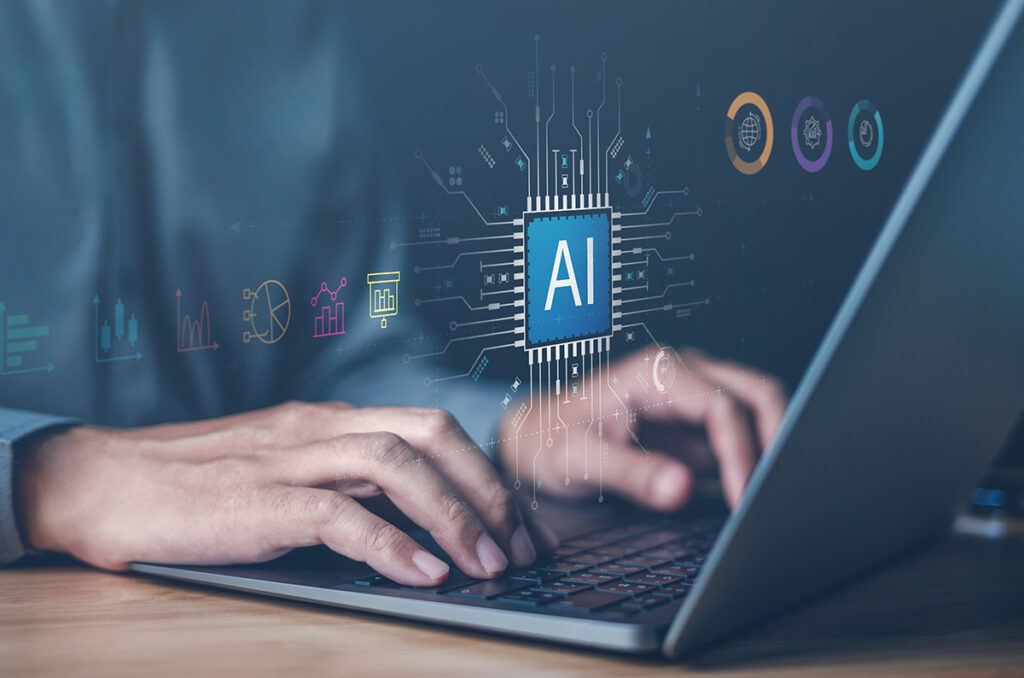The following article is the product of a collaborative effort between Rehgan Avon, CEO and co-founder of Align AI, and Emily Fabiano, Workmorphis founder and CEO.
This article first appeared on The Cincinnati Enquirer’s website.
Events in recent weeks have brought home the scale and scope of artificial intelligence and how society is beginning to grasp the sweeping implications of this technology and work to use it for good and contain risks.
At the same moment that the music world is enthralled with the release of the first new Beatles song in decades made possible by the latest AI, 28 governments, including China and the U.S., signed a declaration stating “there is potential for serious, even catastrophic, harm, either deliberate or unintentional, stemming from the most significant capabilities of these AI models.” And the Biden administration announced broad executive actions in an attempt to establish oversight of the rapidly evolving artificial intelligence sector.
Seventy-three years after the British mathematician Alan Turing published a seminal paper that famously asked, “Can machines think?” we seem to have the answer. And so, the question becomes, “Now what?”
Opportunities and challenges will only grow as applications for AI quickly become limitless. In medicine, manufacturing, business, arts and our everyday lives, there is hardly a place or situation AI could not affect. That’s why Goldman Sachs predicts that generative AI could raise the global gross domestic product by 7% over 10 years, and a 2023 report from McKinsey Global Institute predicts up to 30% of hours currently worked in the U.S. economy will be automated by 2030, thanks to trends accelerated by generative AI.
In short, the exploding development of computer-generated intelligence and decision-making capacity is creating compelling new opportunities for productivity to impact how work is done in every industry. Whether AI is ultimately a boogeyman or benefactor will be determined in large part by how quickly and firmly we understand its potential and then resolve to harness it with appropriate oversight, vision and transparency to further improve our quality of life.
AI is undeniably at the core of our fourth industrial revolution and must be embraced for the benefits it can bring about, not feared for its unknown implications on current approaches to work across virtually all sectors.
Insurance companies use AI to analyze bills and claims for anomalies to better combat fraud. Manufacturers use AI to scan parts and finished goods for flaws that might impair quality. Customer service operations use AI to more quickly provide requested information or assistance.
AI’s capacity to learn over time without being explicitly programmed sets it apart from other technologies. This capability is at the crux of its potential for both abuse and incredible good and where the need arises for appropriate standards and oversight.
Think of AI as a promising but inexperienced new employee. With the right direction and exposure to the employer’s values and culture, that employee can eventually prove to be a strong contributor. Left unsupervised and without boundaries, however, they will accomplish little, waste time and money and inevitably get into mischief.
Therefore, policymakers and corporations alike must resolve to educate C-suites, managers and line staff to understand and monitor AI operations so that inadvertent problems can be immediately recognized and corrected. State government in Ohio has taken a positive approach by creating the TechCred program to reimburse companies for upskilling employees in technology focused roles. A good next step would be to encourage companies to go even further and make sure higher learning is demonstrated in practical applications, just as driver’s education requires hands-on time behind the wheel.
At the federal level, a bipartisan legislative framework, the U.S. AI Act proposed by Senators Richard Blumenthal (D-CT) and Josh Hawley (R-MO) shows promise for establishing independent oversight, legal accountability, consumer protection, national defense protocols and transparency promotion for responsible AI development.
As AI rapidly restructures how almost all work gets done, it is critical for every leader − public and private − to recognize how this powerful tool should be effectively deployed within their spheres of influence to elevate our quality of life in limitless ways. Failing to embrace and harness AI with effective and transparent guardrails is too great a risk to virtually all organizations’ future competitiveness and even sustainability.
Meet the Authors
Rehgan Avon is the CEO and co-founder of Align AI, which helps companies align their data and AI best practices to be industry compliant. She is also the founder of Women in Analytics, a community founded to increase the visibility of women making an impact in the analytics space.
Emily Fabiano is the founder of Workmorphis, a cross-sector workforce consultancy helping organizations build a more resilient workforce to thrive in a changing economy. Fabiano has deep experience in workforce transformation at the government level, working at the cross section of workforce strategy, economic development, and public policy. With a keen understanding of the unique challenges facing today’s and tomorrow’s workforce and the ability to communicate across sectors, Fabiano brings a new level of understanding and collaboration required to connect industry and education and prepare people for jobs. She is also the past director of strategy and operations at the Ohio Governor’s Office of Workforce Transformation.


